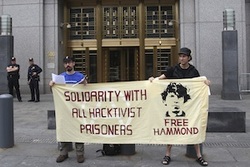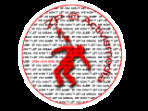
By Adam Gabbatt
Rolling Jubilee spent $400,000 to purchase debt cheaply from banks before 'abolishing' it, freeing individuals from their bills
"Our primary purpose was to spread information about the workings of this secondary debt market," said Andrew Ross.
Photograph: Spencer Platt/Getty Images
A group of Occupy Wall Street activists has bought almost $15m of Americans' personal debt over the last year as part of the Rolling Jubilee project to help people pay off their outstanding
credit.
Rolling Jubilee, set up by Occupy's Strike Debt group following the street protests that swept the world in 2011, launched on 15 November 2012. The group purchases personal debt cheaply from
banks before "abolishing" it, freeing individuals from their bills.
By purchasing the debt at knockdown prices the group has managed to free $14,734,569.87 of personal debt, mainly medical debt, spending only $400,000.
"We thought that the ratio would be about 20 to 1," said Andrew Ross, a member of Strike Debt and professor of social and cultural analysis at New York University. He said the team initially
envisaged raising $50,000, which would have enabled it to buy $1m in debt.
"In fact we've been able to buy debt a lot more cheaply than that."
The group is able to buy debt so cheaply due to the nature of the "secondary debt market". If individuals consistently fail to pay bills from credit cards, loans, or medical insurance the bank or lender that issued the funds will eventually cut its losses by selling that debt to a third party. These sales occur for a fraction of the debt’s true values – typically for five cents on the dollar – and debt-buying companies then attempt to recoup the debt from the individual debtor and thus make a profit.
The Rolling Jubilee project was mostly conceived as a "public education project", Ross said.
"We're under no illusions that $15m is just a tiny drop in the secondary debt market. It doesn't make a dent in the amount of debt.
"Our purpose in doing this, aside from helping some people along the way – there's certainly many, many people who are very thankful that their debts are abolished – our primary purpose was to spread information about the workings of this secondary debt market."
The group has focussed on buying medical debt, and has acquired the $14.7m in three separate purchases, most recently purchasing the value of $13.5m on medical debt owed by 2,693 people
across 45 states and Puerto Rico, Rolling Jubilee said in a press release.
“No one should have to go into debt or bankruptcy because they get sick,” said Laura Hanna, an organiser with the group. Hanna said 62% of all personal bankruptcies have medical debt as a contributing factor.
Due to the nature of the debt market, the group is unable to specify whose debt it purchases, taking on the amounts before it discovers individuals’ identities. When Rolling Jubilee has bought the debt they send notes to their debtors “telling them they’re off the hook”,Ross said.
Ross, whose book, Creditocracy and the case for debt refusal, outlines the problems of the debt industry and calls for a “debtors’movement” to resist credit, said the group had received letters
from people whose debt they had lifted thanking them for the service. But the real victory was in spreading knowledge of the nature of the debt industry, he said.
"Very few people know how cheaply their debts have been bought by collectors. It changes the psychology of the debtor, knowing this.
“So when you get called up by the debt collector, and you're being asked to pay the full amount of your debt, you now know that the debt collector has bought your debt very, very cheaply. As cheaply as we bought it. And that gives you moral ammunition to have a different conversation with the debt collector."
| Occupy Wall Street activists buy $15m of Americans' personal debt .docx |




 RSS Feed
RSS Feed
